Key takeaways
- The post defines angiogenesis (new blood vessel growth) and anti-angiogenesis (inhibiting that process).
- It discusses anti-angiogenesis in the context of disease and notes medical treatments can be used to elicit or inhibit angiogenesis.
- It lists 8 foods the post says have anti-angiogenic attributes (garlic, turmeric, walnuts, tea, grapes, tomatoes, flaxseed, and avocados).
- It also points to lifestyle factors (like smoking, alcohol, and processed/sugary foods) as things the post says can work against overall health.
Anti-angiogenesis is a term used to explain the action of fighting against the development of foreign blood vessels in the body. Angiogenesis, which is its direct opposite, refers to the progression of new blood vessels from the already existing vessels in the body. The growth of these new capillaries or blood vessels is a vital natural process employed in the healing and reproduction of damaged cells, tissues, and systems throughout the body. This is carried out by a balance of growth and mitigating factors to said growth, as too much or too little is not healthy; tissues in the body control this. If there is a disruption in this balance, the resulting process is excess or insufficient angiogenesis. When this occurs, there becomes a dysfunctional blood vessel growth which may happen excessively or in moderation. Under natural circumstances, blood vessels are supporters of life; they are tasked with ferrying oxygenated blood and nutrients to our organs and tissues but when abnormal blood vessels develop, they can easily nourish microscopic cancers.
This imbalance and abnormal growth of capillary and blood vessels cause cancer and many deadly underlying conditions such as skin diseases, blindness, ulcers, heart conditions, stroke, and a lot more others. To combat this, new medical treatments are used to elicit or inhibit angiogenesis.
More importantly, in this article, we will be looking at anti-angiogenesis foods. Anti-angiogenesis foods are those foods that restrain angiogenic growth and development. Anti-angiogenic foods typically block the creation of unnecessary blood vessels and capillaries to thousands of microscopic cancerous cells that predominantly exist in the body. Almost every human has cancerous microscopic cells in their body at some point, but they are essentially harmless because they can’t grow to cause problems. The anti-angiogenesis process prevents cancer growth in the body, or in cases of already developing cancer cells, it halts their growth to stop their spread.
Unbalanced and unchecked angiogenesis growth stimulates cancer growth by releasing growth proteins that can cause unneeded blood vessels to develop into tumor tissue, providing it with blood supply; this then gives it oxygen and nutrients for its continued development. Eating anti-angiogenic foods helps prolong the lives of cancer patients, reverse blindness, prevents amputations, and leads to overall better health. Anti-angiogenic foods contain minerals and antioxidants that interfere with the unchecked growth of blood vessels, which limits the inflow of oxygen and nutrients to the tumor by limiting the development of the capillaries. This delays tumor growth and even leads to the death and regression of tumors in cancer patients. This can help deal with the brain, thyroid, liver, breast, kidney, lung, colon, bone cancers, and many more. However, when controlled and geared towards the right processes, angiogenesis is very profitable to the body. As long as the angiogenesis system functions properly, blood vessels grow naturally and exist in the required places, with the adequate necessary amount.
However, angiogenesis can aid the reinvigoration of blood supply to wounds to foster healing, and prevent amputations. It can be used to develop blood vessels that are essential to our health. As mentioned previously, blood vessels are responsible for delivering oxygen and its constituents to every cell in the body. Too few blood vessels lead to organ and tissue death. This approach can also save limbs afflicted with poor blood and oxygen circulation, and it can even help hearts struggling to acquire oxygen.
An anti-angiogenic diet list basically contains fruits, herbs, vegetables, garlic, grapes, turmeric, soybeans, and parsley, to mention a few. Presently, varying tests have proven that combinations of these anti-angiogenic foods provide our bodies with an added protection than these foods do by themselves. This is due to food synergy, which implies the variety of healthy foods is more productive than eating larger quantities of these foods singly. Not all foods possess this, but eating just the right combinations might prove more effective. Hence, we’re right on course to give you a list of anti-angiogenesis foods.
8 Popular Anti-angiogenesis Foods
1. Garlic
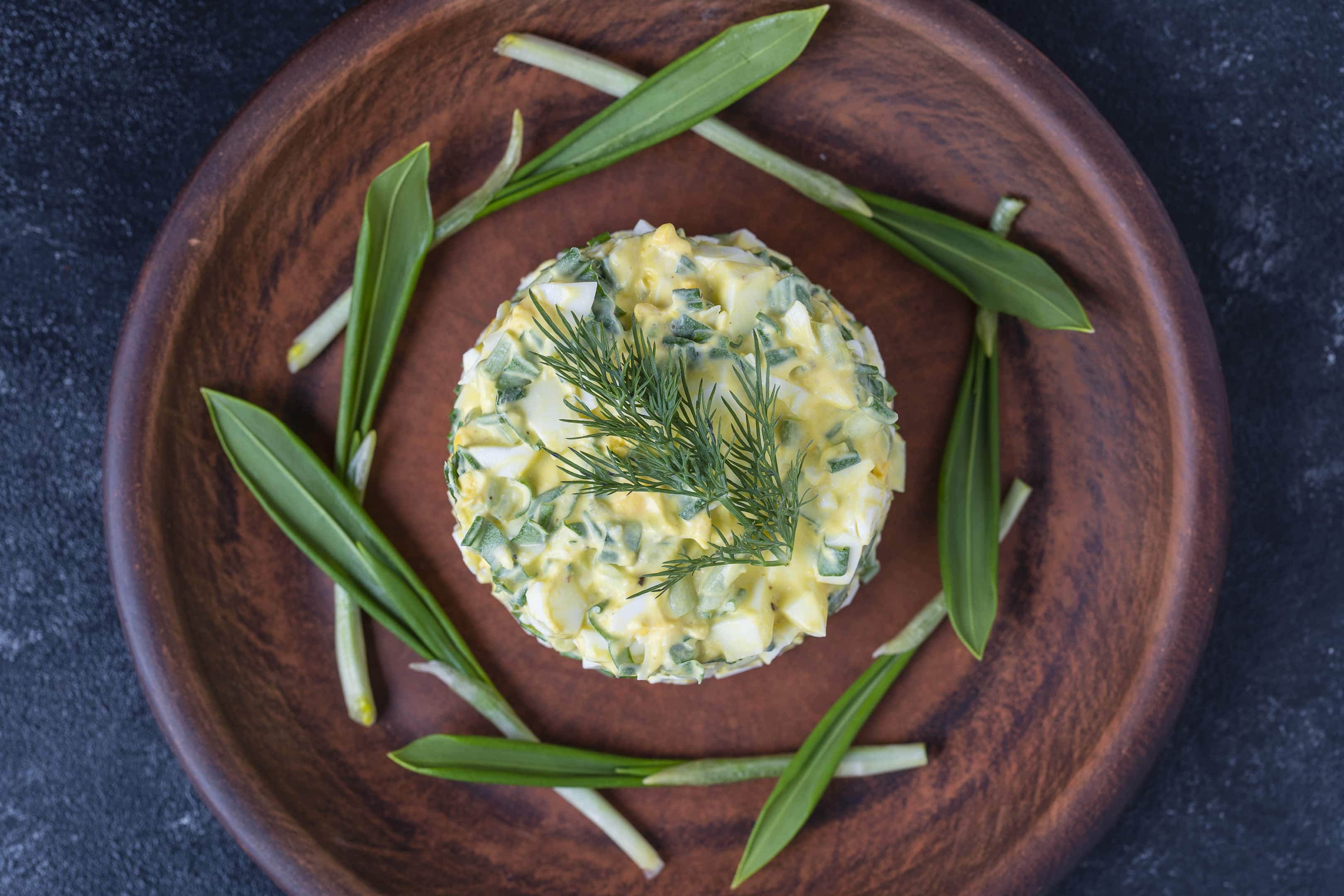
Garlic is a powerful medicinal herb and an excellent example of anti-angiogenesis food. As we all know, garlic is an herb that comes with an overflow of advantages that it can provide. It contains an antioxidant called anillin which is exemplary for reducing angiogenesis in the body, by inhibiting the fibroblast growth induced in the endothelial cell of the human body. Also, vitamins C and E in garlic significantly increases the anti-angiogenesis effects of anillin, which helps restrict the growth of blood vessels and stall the maturation of cancerous cells. Garlic also comes with antibacterial properties, which help fight against diseases while halting the activities of harmful cells in the body.
2. Turmeric
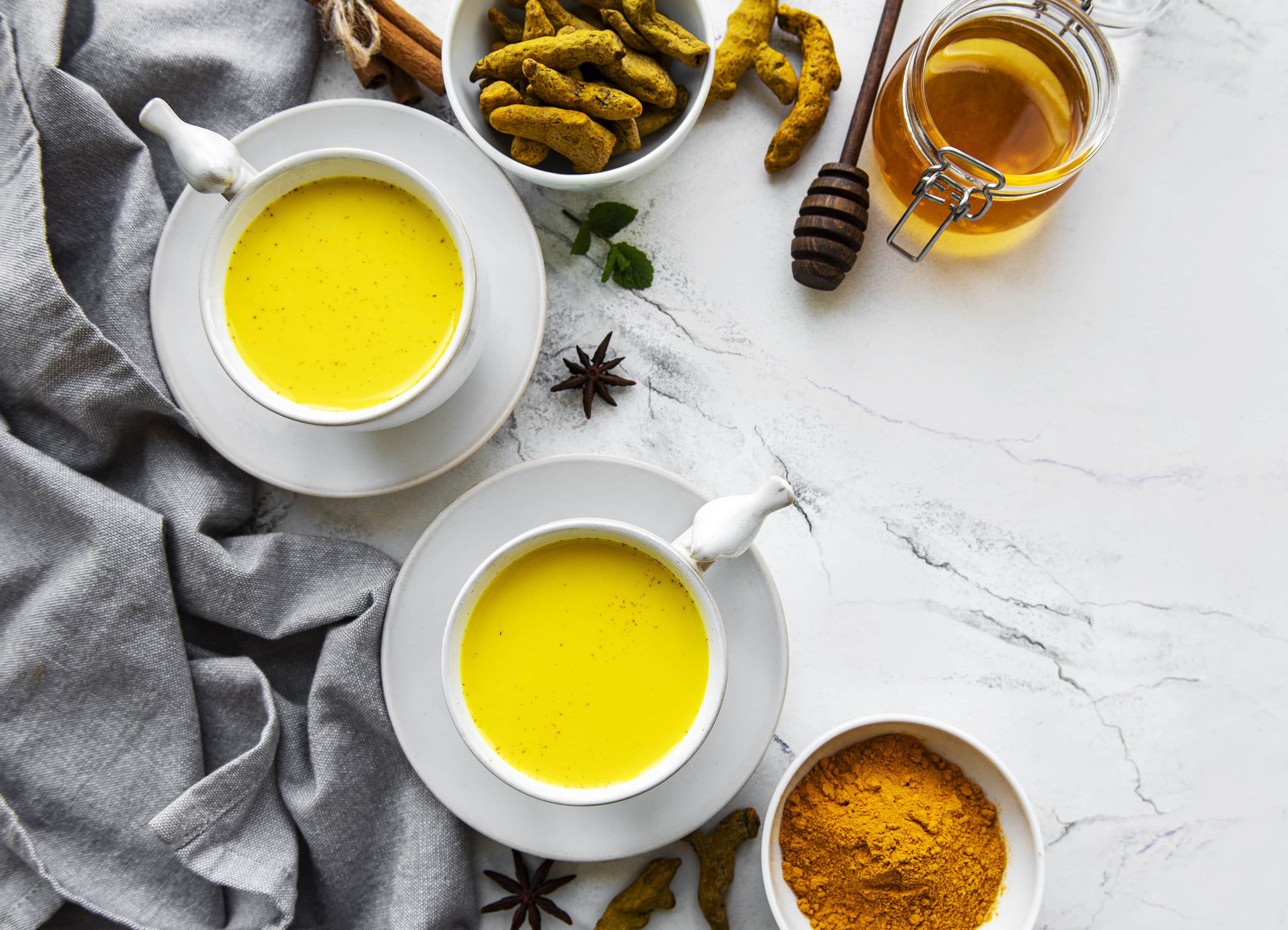
Turmeric is another excellent example on the list of anti-angiogenesis foods. It is made up of curcumin which is a powerful antioxidant. Curcumin is a polyphenol compound that possesses various pharmacological benefits like antioxidant, anti-inflammatory, and anti-cancerous properties. It expresses its anti-angiogenic effect by activating apoptotic pathways in cancerous cells. This mitigates angiogenesis and inflammation in the tumor while also bringing about the suppression of tumor development. Several studies have shown that curcumin inhibits angiogenesis in different tumor cells in a review published in 2019 in Nutrients. This review provides an accurate summary of the different activities carried out by curcumin to elicit its anti-angiogenic characteristics. Curcumin is a known inhibitor of angiogenesis, and it can also decrease several proangiogenic factors. This chemical compound can suppress the angiogenesis process by diminishing the transcription factors that aid the growth of tumors. Also, curcumin possesses antiseptic benefits and should be avoided by those with diabetes, gallbladder conditions, infertility, bleeding disorders, gastroesophageal reflux disease, iron deficiency, liver disease, and others.
3. Walnuts
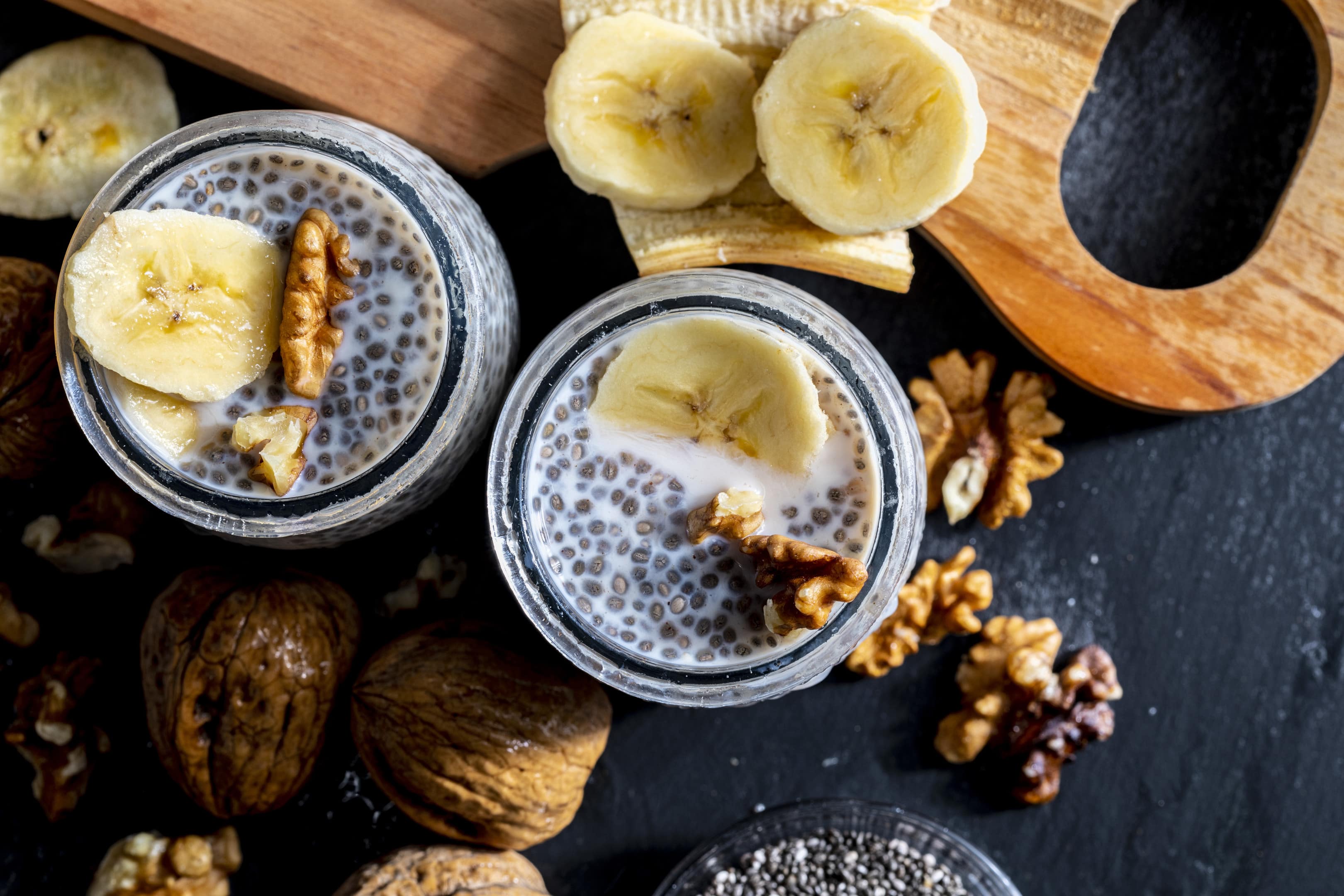
Walnuts possess a large number of compounds with anti-angiogenic effects. One of these compounds, known as ellagic acid, has been demonstrated to inhibit angiogenesis in varying research. Flaxseed, another food on the anti-angiogenesis foods list. It has a similar effect in its oils as walnuts on angiogenesis. Walnuts are also great sources of antioxidants that fight free radicals and fight against cell damage in the body. They are also anti-inflammatory, lower cancer risk, lower cholesterol and prevent diabetes.
4. Green tea and oolong tea
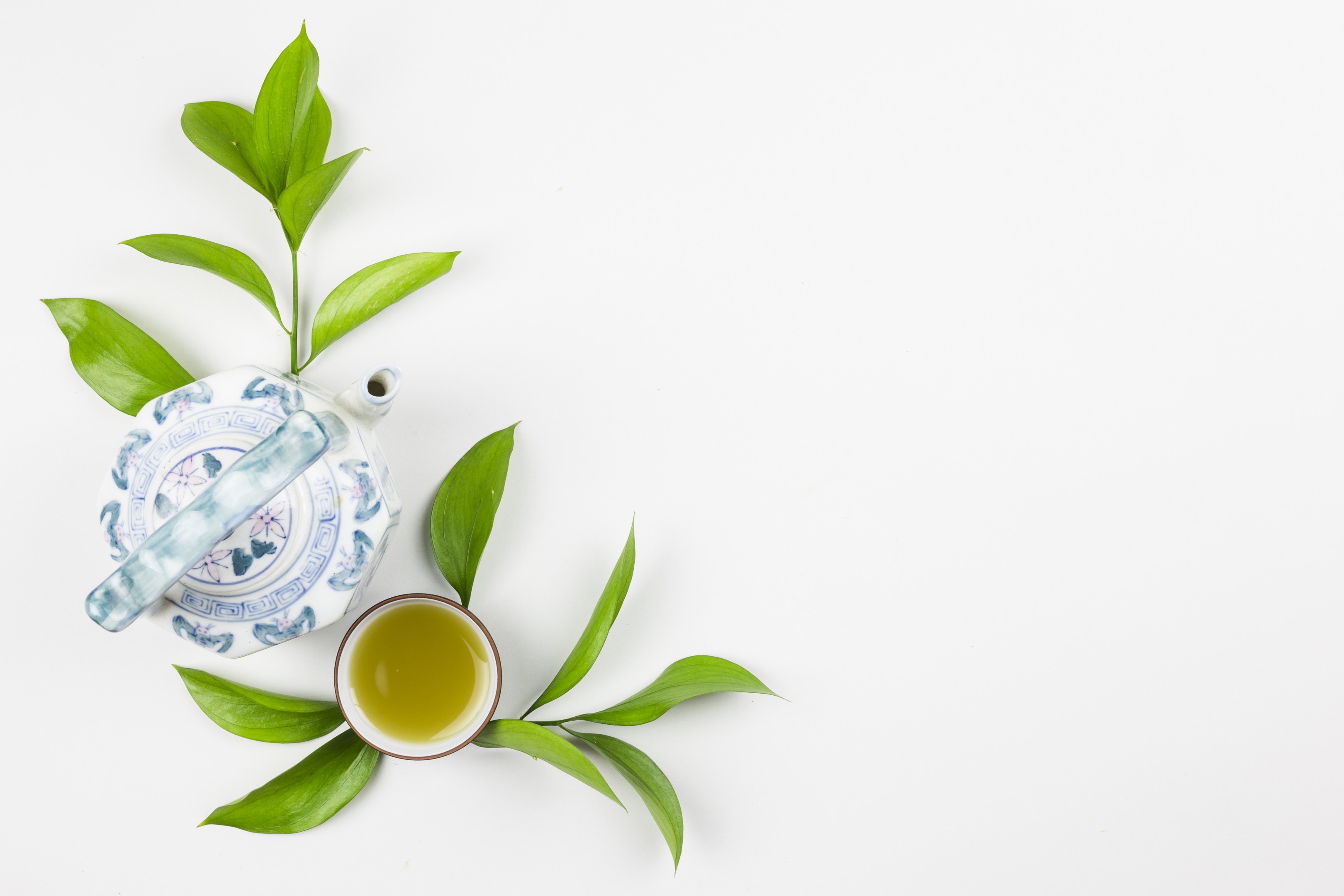
Oolong tea is a unique tea from the Asian continent. It is partially fermented, and like its counterpart, green tea, it possesses substances called polyphenols that have been shown to portray anti-angiogenic properties. In green tea leaves, the unfermented polyphenol is catechins, which also possess anti-angiogenic properties. Green tea also contains healthy bioactive compounds that reduce inflammation and help fight cancerous cells. Green tea also improves brain function, helps burn fat, reduces bad breath, lowers the risk of diabetes, and aids cardiovascular health.
5. Grapes
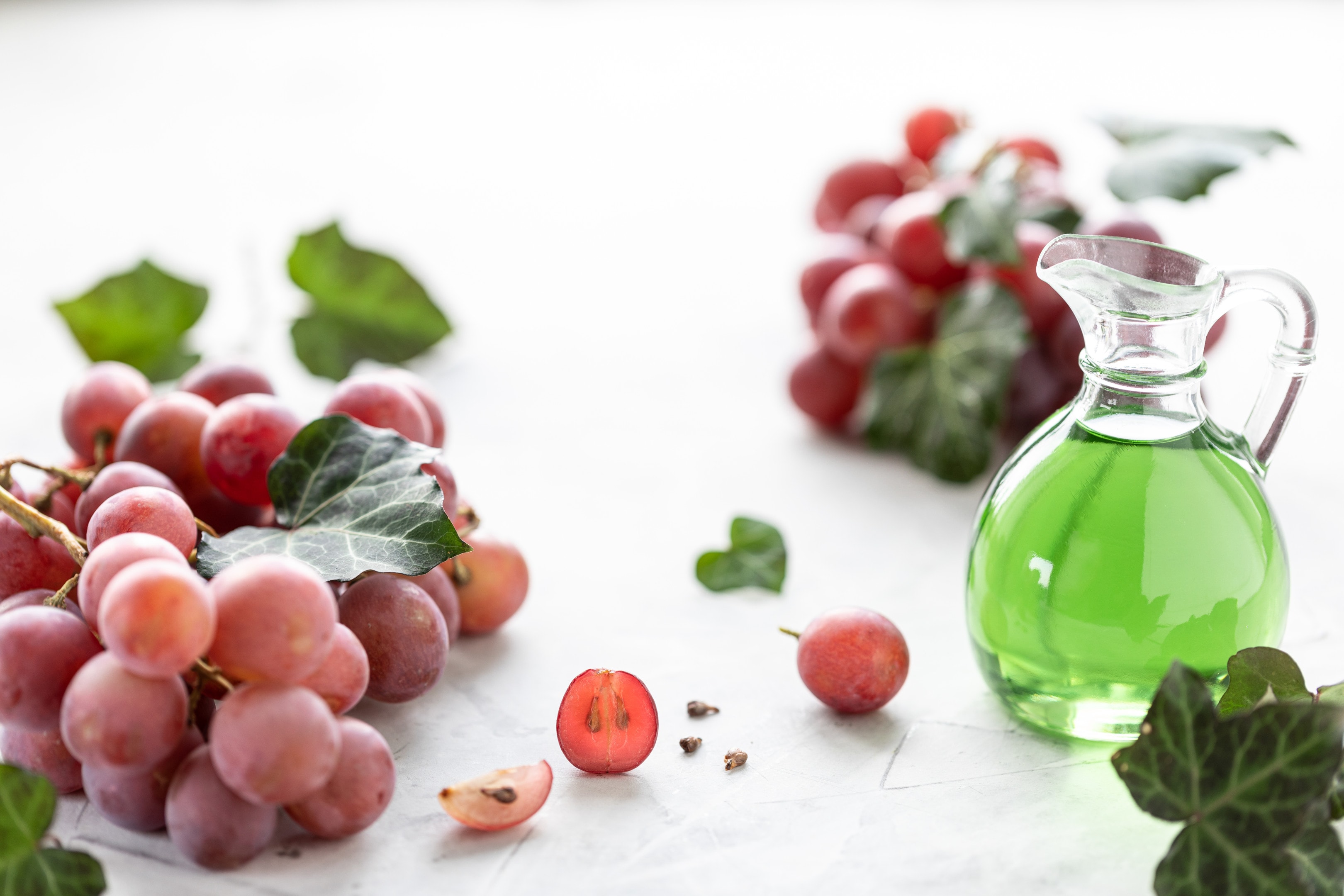
Grapes and wine made from red grapes are high in polyphenols. Grapes and their seeds, when crushed, contain various polyphenols with anti-angiogenic and anti-inflammatory activity. Grapes contain resveratrol, gallic acid, epigallocatechin-gallate, epigallocatechin, epicatechin-3-gallate, epicatechin, and proanthocyanidins. They are all-powerful antioxidants that possess anti-cancer, anti-inflammatory, and heart-boosting effects. These compounds are recognized for their ability to inhibit tumor cells' blood and oxygen supply and suppress the growth of tumors. Anthocyanins give grapes their unique color, and even after high fermentation, grapes still contain reasonable amounts of antioxidants. Grapes also possess vitamin C, beta-carotene, lycopene, and lutein, which help combat toxins in the body.
6. Tomatoes

Tomatoes and tomato paste are known to contain the antioxidant lycopene. It is a carotenoid antioxidant with substantial antioxidant and anti-angiogenic attributes. Continued eating of foods containing lycopene helps downgrade cancer risk and progression, making it a good diet for cancer patients. Tomatoes come with a range of other benefits and nutrients; for example, they contain considerable amounts of vitamin C and K that help strengthen bone tissue. They also contain beta-carotene that functions to prevent cell damage. In addition, using paste from tomatoes can help eliminate the damage done to the skin by continual exposure to the sun.
7. Flaxseed

Flax seeds, less popularly known as linseed, naturally possess omega-3 fatty acids, fiber, along with other vitamins and minerals. They are also a rich source of a compound called lignans, which have anti-angiogenic properties. The continuous consumption of flaxseed can increase the level at which endostatin is produced in the body; endostatin is a natural restrainer of angiogenesis. Endostatin exists naturally in the body and prevents angiogenesis. Flax seeds are best-consumed ground and are more accessible for the stomach to digest in that manner. Flax seeds can also help lower blood pressure, aiding digestion, reducing cholesterol levels, and cancer and diabetes prevention. Flax seeds are easy to process and add to your diet.
8. Avocados
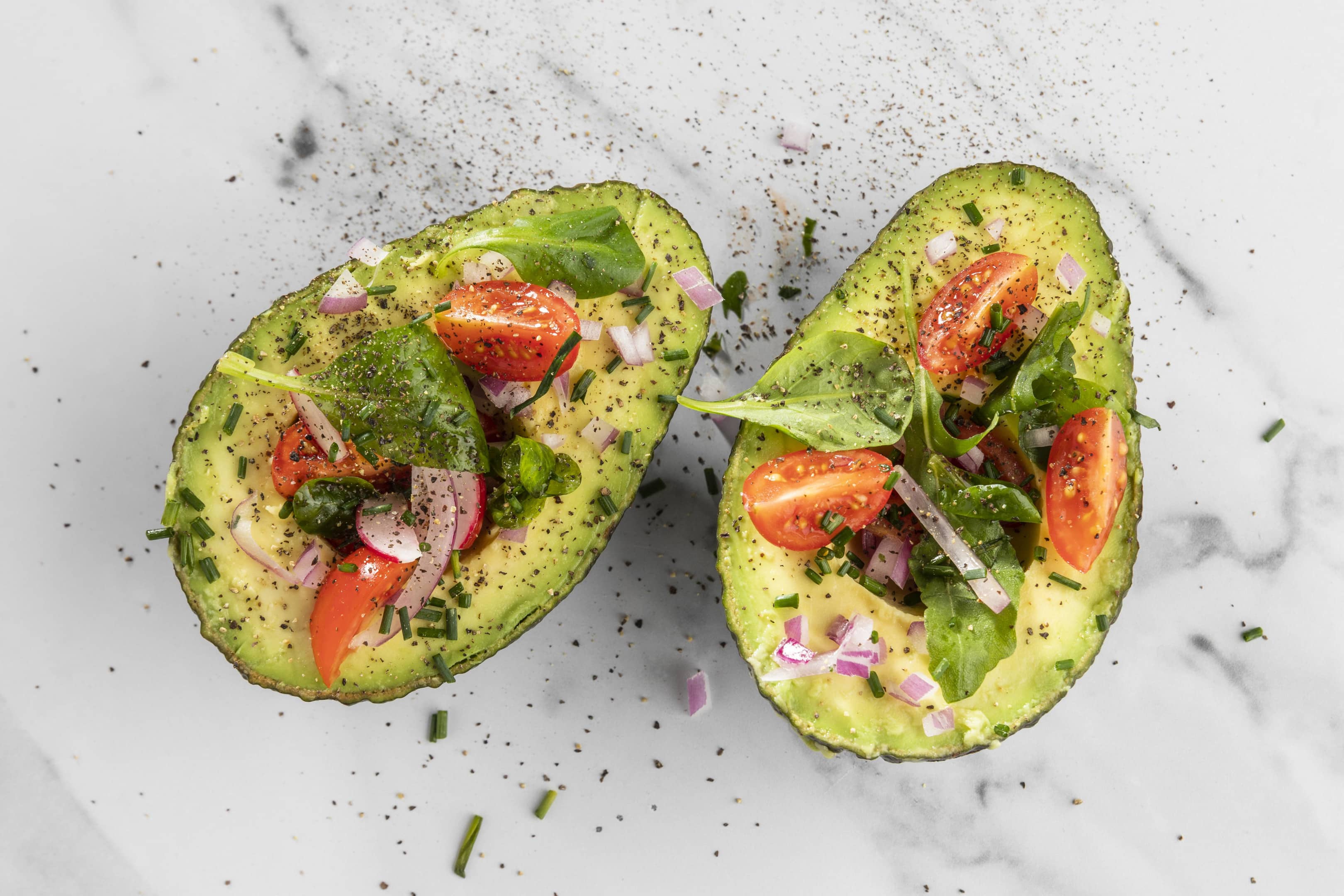
They contain vitamin K, folate, potassium, vitamin B, and C and are loaded with zinc and iron. This fruit possesses natural anti-angiogenic properties; it contains a compound called lutein which is very efficient in warding-off the symptoms of cancer. Avocados also contain carotenoid which has a lot of medicinal qualities because of the mono-saturated acids and fiber they contain. Research has proven that avocados contain a high-level percentage of carotenoid when ripe. The lutein and carotenoids they contain also give them the ability to keep the eyes healthy and improve vision. They also help in lowering cholesterol levels, relieving symptoms of arthritis, and improving cardiovascular health.
Conclusion
What we consume can help our ability to combat diseases and stay healthy. Lifestyle factors, including poor nutrition and bad habits like smoking and drinking alcohol, can reduce and prevent proper body functions. All the foods listed above have different attributes that enable them to inhibit angiogenesis processes in the body. This helps them avoid damaged cells, illnesses, and prevent the maturation of cancerous cells in the body. However, processed foods like red meats, alcohol, and sugary drinks should be avoided; eating these foods in combination will provide you with varying anti-angiogenic attributes, which may prove to be more efficacious in their activity on the body.






